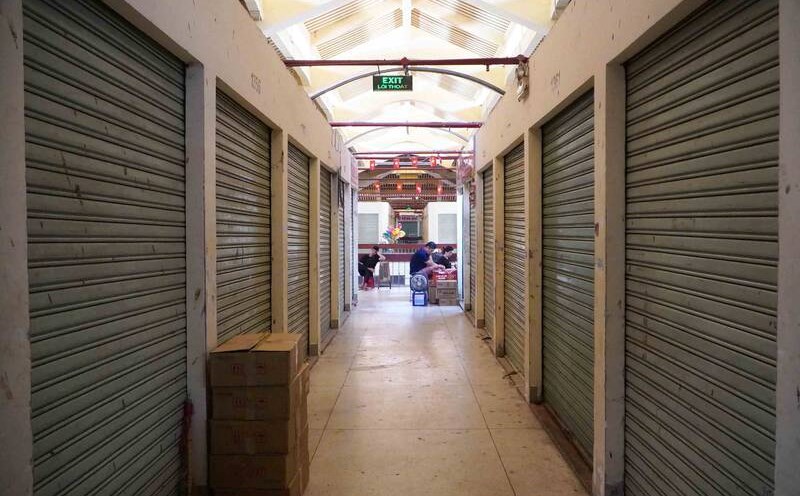According to the Department of Industry and Trade of Ho Chi Minh City, the majority of traders have realized the need to comply with new regulations related to electronic invoices, taxes and compulsory social insurance. However, the implementation process still has many problems, especially for older business owners or those with little access to technology.
Due to the impact of age and limited technological proficiency, a part of traders have difficulty using electronic invoices. The fear of mistaking, violating regulations and being punished makes them even more confused. On the other hand, the support team at the market is mostly low- qualifications, lacking knowledge of accounting and technology, and cannot provide timely support when requiring invoices.
The implementation of electronic invoices also causes business households to incur additional costs. Many small businesses have not been equipped with machinery for issuing, printing and storing invoices. The cost of purchasing equipment, software, printing and even the issuance fee for electronic invoices is a significant burden. The business space at the market is already cramped, making it difficult to arrange shelves and cabinets to store documents.
In particular, some businesses have many points of sale but are only granted one business registration certificate, forced to have relatives register to rent the premises and register the business on their behalf. However, the person whose name is on the list does not directly operate, causing difficulties in performing the obligation to declare and issue invoices for each business point.
In addition, operating costs at the market are increasing, such as electricity, water, garbage collection and transportation fees, etc. Meanwhile, households have to invest in additional equipment for issuing invoices, and participate in compulsory social insurance, causing costs to increase significantly in the context of reduced purchasing power.
Traders also reported unfair competition from spontaneous business locations around the market. While businesses in the market must strictly comply with State regulations and be regularly inspected, spontaneous trading points almost do not fulfill financial obligations and do not issue invoices, causing a difference in selling prices, reducing competitiveness and the number of customers coming to the market.
Determining revenue at the market is also facing many difficulties because most businesses are implementing it under the contract tax form. This causes confusion in the process of determining the subjects of application of Decree 70/2025/ND-CP. In addition, there is a phenomenon of business households being false-declared for revenue because suppliers issue invoices to retail buyers but declare that they are selling to traders at the market, causing revenue figures to not accurately reflect the reality when reviewing with the tax authority.
Faced with the above situation, the Department of Industry and Trade of Ho Chi Minh City recommends that competent authorities consider adjusting the roadmap for implementing new regulations in a flexible direction, dividing them into groups of subjects, creating conditions for business households to have time to adapt.
At the same time, it is proposed to issue a policy to support electricity, water costs, garbage collection, equipment investment costs related to invoice issuance; free issuance of electronic invoice numbers to traders at the market to ensure social security and balance the competitive environment between business households in the market and spontaneous trading points.











